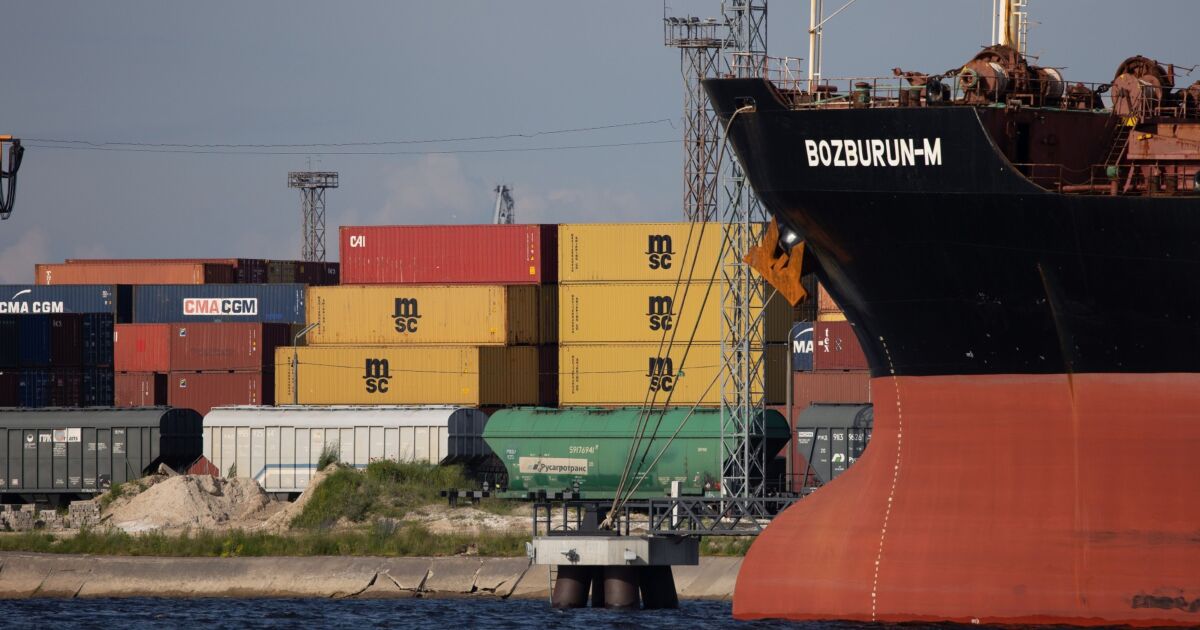Why businesses must tackle emerging logistical risks

The past few years have demonstrated the extreme interconnectedness of our global supply chain, and revealed significant fractures in the system. COVID lockdowns, labor shortages, the war in Ukraine and more have led to massive disruption of our global trade network, complicating an already intricate industry. For the average consumer, this means longer shipping times, maybe a lost package, but for businesses this disruption comes at a cost with a whopping $184 million lost to supply chain disruption in 2021. For businesses of all sizes, understanding and accounting for a new set of risks — being able to cut through the complexity — is essential to operating in today’s environment, and technology-led solutions may be the way forward.
Understand when you’re protected, and more importantly, when you’re not
Amid changes in the global economy, businesses looking to better understand risks in their supply chain are often left surprised at where they are actually covered. An example of where this gap in understanding may arise is carrier-provided insurance. A business might assume that carrier-provided insurance will cover the goods inside of a package. However, it only protects carrier liability, meaning if a shipment is destroyed or damaged, the businesses must prove it was the carrier’s fault in order to submit a claim, and even then the covered amount is limited.
Some carriers will only cover the shipper’s cost (i.e. how much the shipper paid for the item), which doesn’t include their profit margin. Businesses should ensure they are fully covered by picking shipping insurance solutions that are focused on what has been lost, rather than whose fault it is.
With the cost of failed deliveries skyrocketing, it’s important for businesses to ensure they have full clarity into how they’re being protected. This visibility is important not only when businesses decide what coverage they need, but also when they need to file a claim.
A faster, more transparent claims process
As the supply chain continues to digitize, there’s more visibility into all aspects of logistics and opportunities to rethink traditional insurance offerings. One area that has time and again proven to be a significant pain point for businesses is the claims handling process. Sometimes, businesses have to wait up to 30 days before their claim can be initiated, which doesn’t even account for the processing time. This leaves businesses at risk of being under-protected and puts unnecessary dampers on growth and expansion opportunities.
The good news is that there are technology-led solutions that provide a standardized, quicker, and more transparent claims handling process. For example, approved claims can be immediately paid out once the shipping platform updates the event status through an automated system. By streamlining the claims process, businesses can spend less time worrying about recovering financial losses and more time setting themselves up for long-term success.
Global protection wherever you need
Businesses often have to navigate policy benefits and claims processes that differ not only between carriers, but across geographies as well. A single shipment could travel thousands of miles, through several countries before reaching its final destination. Carrier-provided insurance can vary by service type, carrier, or location, and again, might not even cover the full declared value of goods lost. And when it comes to traditional insurers, there are very few in the logistics space that can operate both in and outside of the U.S. When choosing shipping protection, businesses should look for insurance partners who have the ability to offer the same benefits and claims experience in any country, with any carrier.
The logistics industry is inherently a global industry, with supply chains stretched across several shipping lines and countries. With new risks emerging on an international scale, it’s more important than ever for companies to have a complete understanding of the policies protecting their goods. Tech-led insurance offerings are the modern solution to bridge coverage gaps and standardize protection for global companies, providing them with the security they need to confront whatever risks that may arise.



